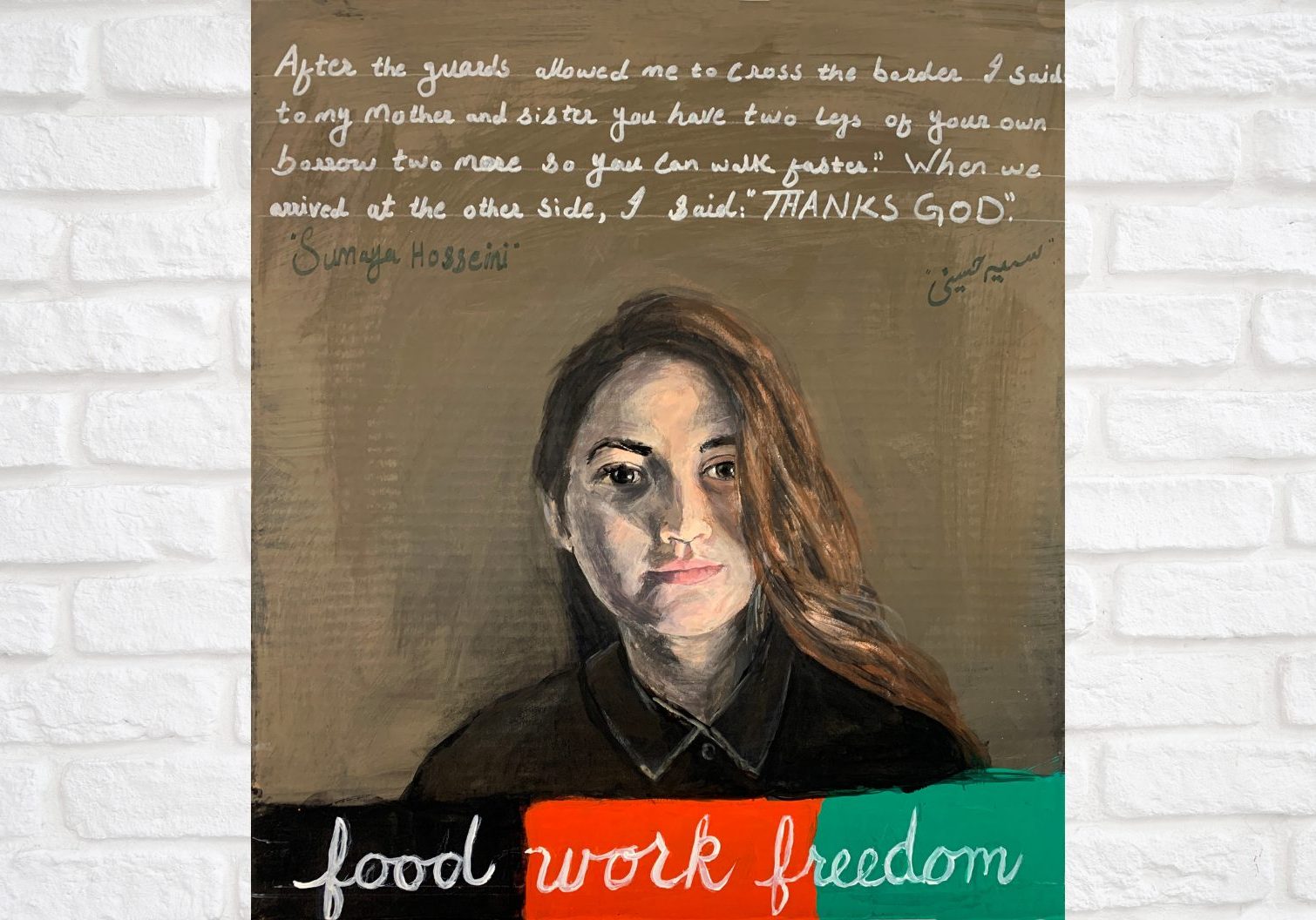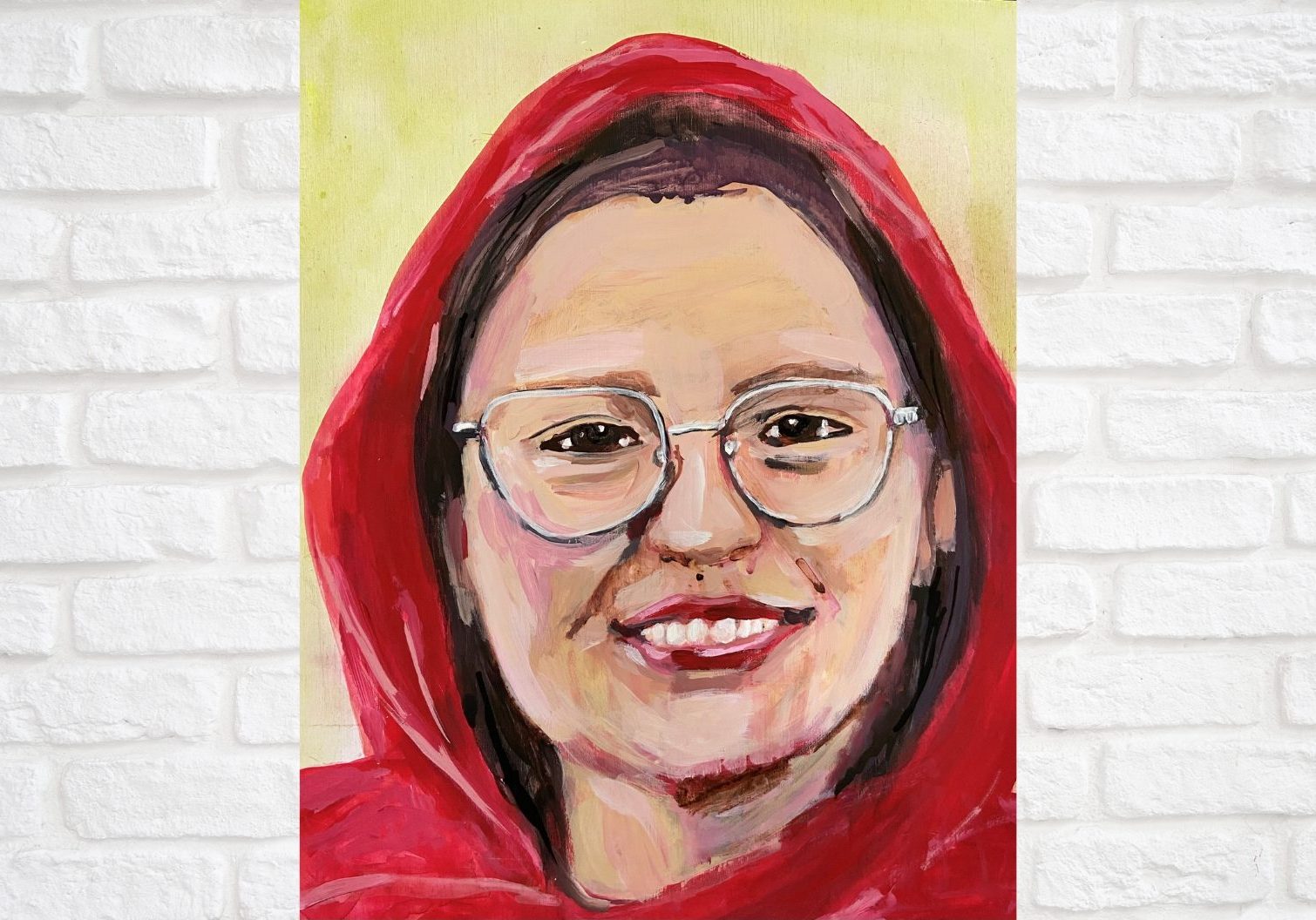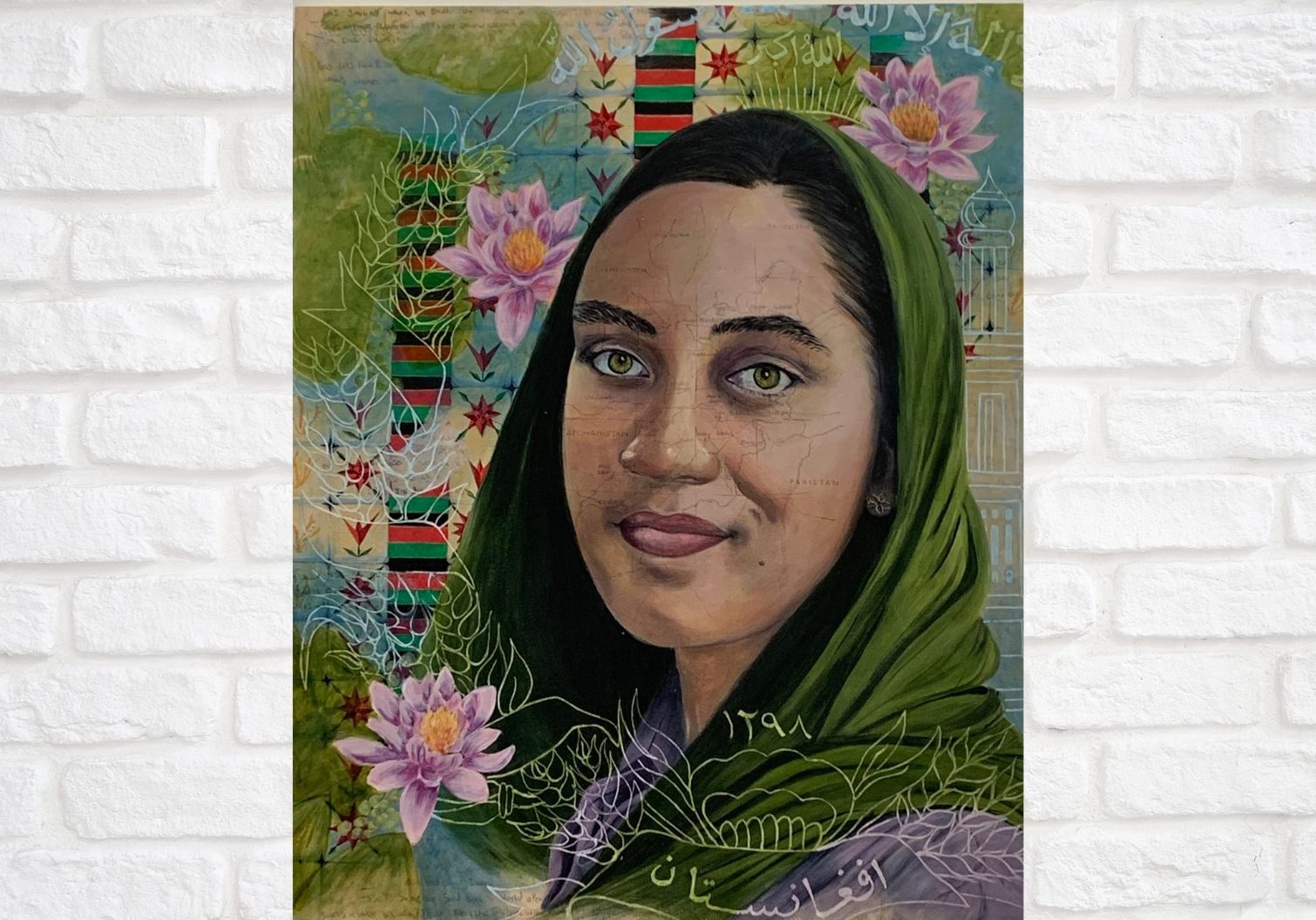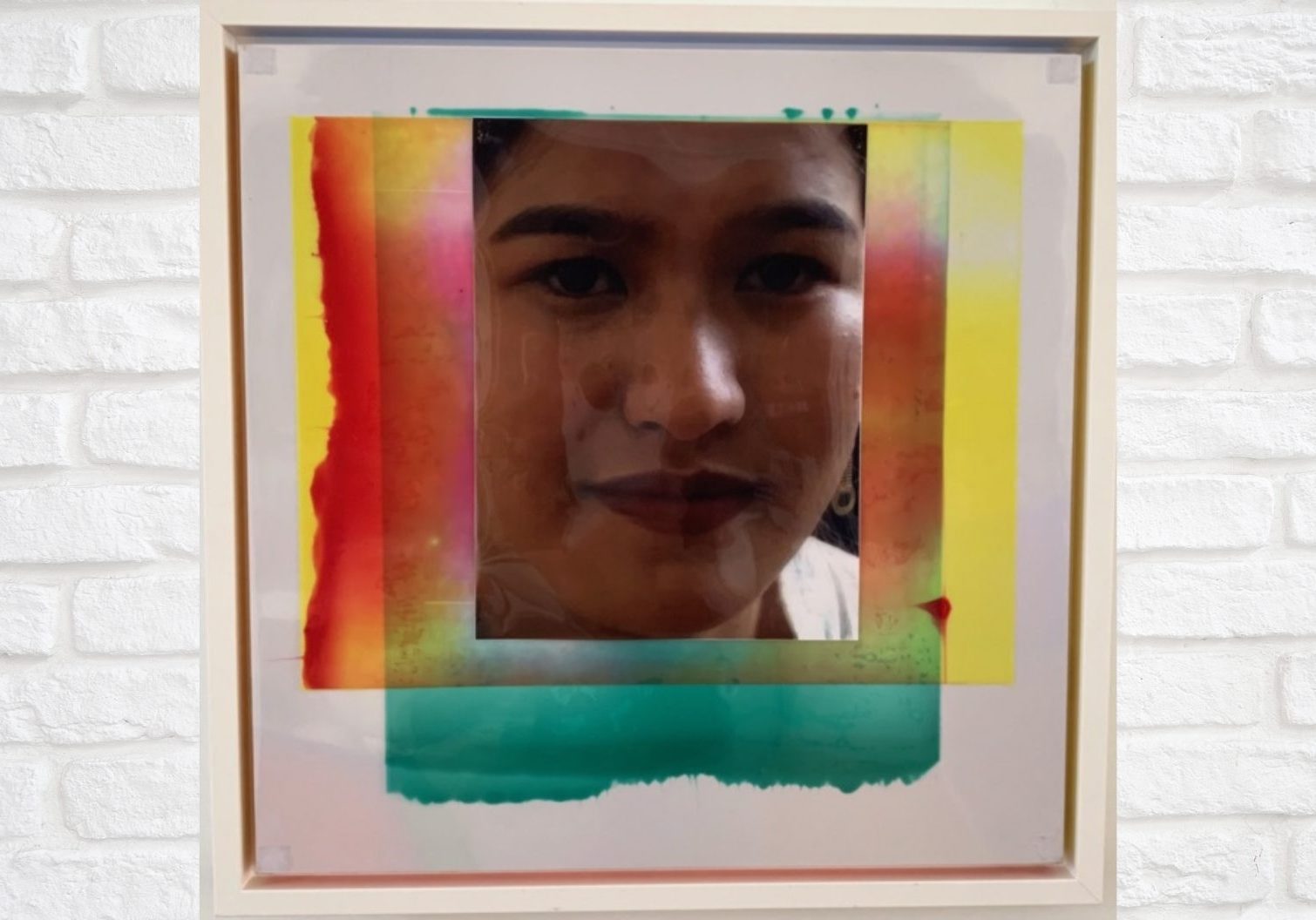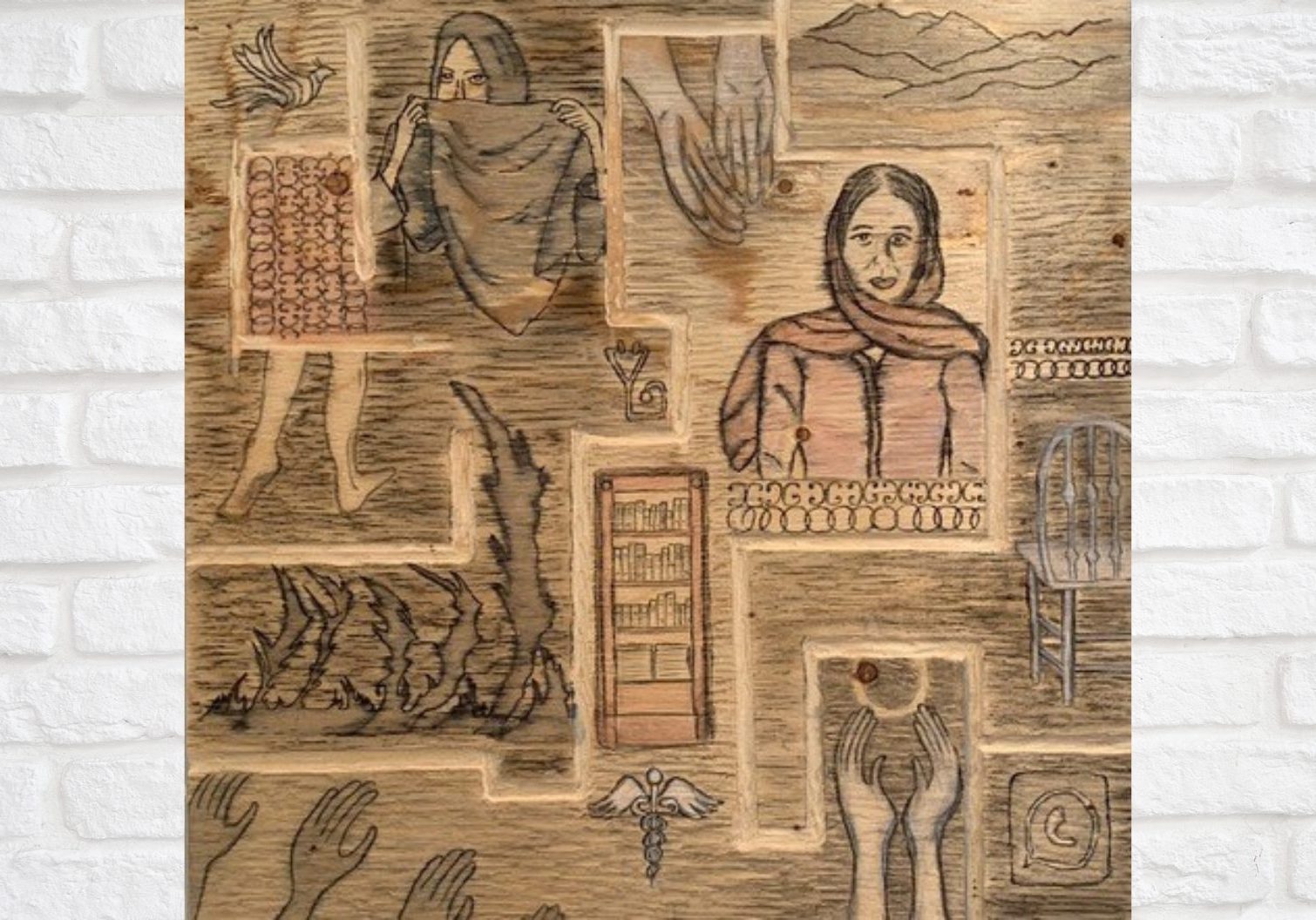Life-Threatening Shoes
Life-Threatening Shoes
Setara Zahedi
Summary:
A banker does not believe the terrible news of the coup in Kabul, yet she must somehow make it home. How is it possible when what she is wearing may endanger her life?
Story:
On August 15, 2021, I woke up at 6:00 a.m. and prepared to go to work as usual. I felt nervous on the way because most of streets were emptier than on other days, but behind the gates of the banks and the Iranian embassy, large numbers of people were lined up for hours to withdraw their money and find a way out of the country.
My body was filled with anxiety. I kept asking myself what I would do if the Taliban took control of Kabul.
I arrived at the bank and had just turned on my PC to start my job. Suddenly, one of my colleagues said, “I just received a call. Kabul has fallen!” I did not believe him. I told him it was gossip, impossible, and not to pay attention to this news. How could the Taliban so easily conquer Kabul?
A few minutes later, I received a call from my older sister. She gave me the same shocking news.
I was scared and asked myself whether I would I get home safe and sound. My clothes were not good, not even my shoes. I wore white ballet flats with a vamp decorated with a chain of golden rings. The Taliban do not let people wear white, especially shoes and socks, because it is the colour of their flag. I had no other choice. I had to get home.
Eventually, I was able to persuade one of the bank’s drivers to accompany me part of the way. We left in a hurry, but the road was jammed with traffic. Everyone was trying to escape. Even the soldiers were fleeing to keep their military equipment from the hands of the Taliban. I had never encountered such a chaotic scene before. For more than two hours, I was on the airport road. I saw a lot of people with baggage. They were all heading for the airport.
They realized that the dark era of oppression and ignorance would begin again.
After waiting for two hours in the crowded street of the airport, I decided to get out and walk. Fear and apprehension had taken over my whole being. How could I go this long and scary way in my white shoes? How could I hide them? What a risk I took. With every step, I felt that I was drawing attention to myself and would soon be punished in the worst way.
After one hour of walking, I found a taxi. When I sat in the car and looked around, I saw good roads, educated people, new construction and businesses. I just started to cry. My country was our family. It was a social structure. It was a life and an income. It was the result of years of effort, but how easily we lost it. I could feel the hopelessness in the people.
With tears in my eyes, I somehow reached home safely after six hours. I looked at my tired feet. I never thought that my shoes would be dangerous for me and even cost me my life. My sisters and I had lost all our hopes and dreams. From that point on, we wouldn’t have any rights. The era of oppression was back, especially for the Hazara ethic group.
My father was so worried about our lives and our future. He had sent his daughters to high school and university with the hope that they would be able to stand on their own two feet—an unattainable dream now. Now these white shoes in my cupboard remind me of that bitterest day and hurt my heart.
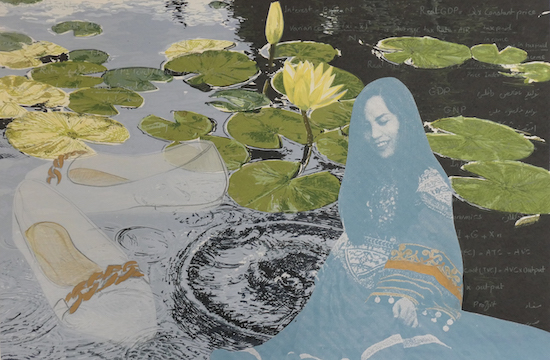
Setara Zahedi has a degree in Economics from Kabul University. In 2021, After the fall of Afghanistan, she was forced to leave her family and country to save her life and freedom.
Portrait: Monique Martin with Setara Zahedi
White Shoes
Ink and paint on various papers (silkscreen)
2023
This piece uses a print proof from a past work of Monique’s with an image of a waterlily as subject matter titled “Pebble in a Pond”.
Setara wrote various economic formulas we converted to a silkscreen and printed them over the lilies as a symbol of Setara’s job as an economist in Afghanistan before she fled.
She also printed white shoes similar to the ones she had worn on August 15. Another layer is an image of herself in her traditional clothing collaged over the print proof.

